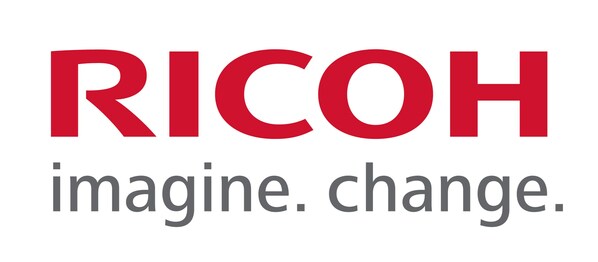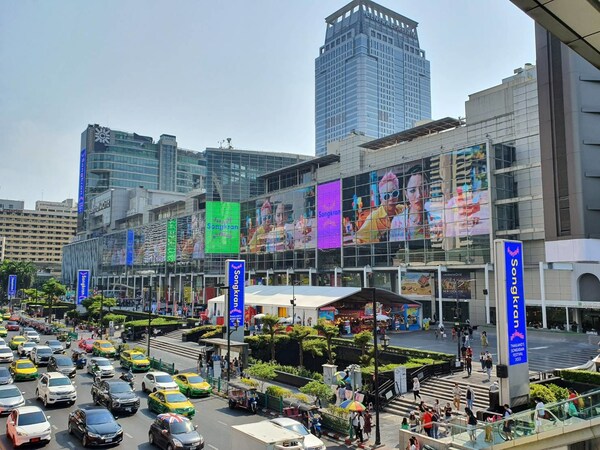BEIJING, Sept. 27, 2023 /PRNewswire/ -- Over the past decade, the Belt and Road Initiative (BRI), following the guiding principle of extensive consultation, joint contribution and shared benefits, has grown into a global platform where countries participating in it work together to promote people's well-being and give a further boost to global development.
As the BRI celebrates its 10th anniversary, Global Times reporters Yin Yeping, Wang Wenwen and Ma Mengyang interviewed diplomats and scholars to learn about achievements of the cooperation in Greece, Hungary and Serbia over the past decade and their expectations for high-quality BRI construction in the next decade.
Xiao Junzheng, Chinese Ambassador to Greece
The ancient Greek philosopher Aristotle once said, friendship is a single soul dwelling in two bodies. China and Greece are comprehensive strategic partners with a history of friendly exchanges dating back thousands of years. In the 51 years since establishing diplomatic relations, both countries have fearlessly navigated the changing international landscape.
China and Greece have consistently upheld the spirit of mutual respect, equality and mutual learning, engaging in fruitful cooperation. The two countries have become an exemplary model of peaceful coexistence and win-win cooperation between nations of different scales, systems, national conditions and civilizations.
With the joint efforts of both China and Greece, the mutually beneficial cooperation between the two countries has yielded fruitful results.
Since China COSCO Shipping took over the management of the Piraeus Port, the port has experienced a remarkable transformation. The container throughput has grown from 880,000 twenty-foot equivalent unit (TEUs) in 2010 to over 5 million TEUs today, making it a leading port in the Mediterranean.
This development has directly created over 3,000 job opportunities for the local community and indirectly generated more than 10,000 additional jobs.
In the future, China and Greece can further strengthen their commitment to the comprehensive development plan for Piraeus Port, enhance cooperation in customs trade and facilitation of clearance procedures, advance the construction of port logistics parks, and make new contributions to maintaining the stability of the China-Europe industrial and supply chains, promoting economic integration in the Balkans, and advancing the EU integration.
The concept of green development is increasingly being reflected in the cooperation projects between the two sides.
Chinese-produced new energy vehicles have successfully entered the Greek market this year. China and Greece have strengthened their strategic alignment in technology development under the framework of the China-Greece Joint Committee on Science and Technology Cooperation and the Belt and Road Science, Technology and Innovation Cooperation Action Plan.
Simultaneously, both China and Greece should continue their efforts in strengthening mutual cultural exchange and learning. Perseverance in this endeavor will serve as a lasting example of cultural exchange and mutual understanding for the world. Together, both sides can draw upon the wisdom of ancient civilizations to seek solutions for contemporary challenges.
Throughout Greece's successive governments, there has been a strong emphasis on fostering relations with China. Following the re-election of the New Democracy Party government, they have continued to support both the co-development of the BRI and cooperation between China and Central and Eastern European countries.
I believe that in the future, under the guidance of the high-quality construction of the BRI, both sides will further promote the realization of China's modernization model and Greece's enhancement of its national competitiveness. Together, both sides will nurture new areas of cooperation such as green development and the digital economy, bringing greater prosperity to the people of both countries.
Norbert Csizmadia, a Hungarian expert in economic strategy
As a member of the EU, Hungary is the first country to bridge the gap between the West and the East. We place significant emphasis on fostering strong cooperation not only in terms of investments and infrastructure development but also in technology, culture, education and green financial initiatives. We are focused on the future with more connectivity.
There are six key areas of economic cooperation between China and Hungary, with a particular emphasis on collaboration within the Belt and Road Initiative. This focus has not only been prominent in recent years but will continue to be a priority. We believe that the era of Eurasia has arrived and consider it a crucial direction for the future. Furthermore, we firmly believe in peaceful and harmonious cooperation.
If we examine the global construction based on geographical divisions, it becomes evident that we are living in a multipolar world order. China is more and more important. For instance, in 2019, 49 percent of global economic growth was attributed to China and Southeast Asian countries, and China alone accounting for over 30 percent of global economic growth. Looking at a map of China, one can observe the geographical stretch from Beijing to Shanghai shares similarities with Central and Eastern European countries -- from the Baltic area to the Adriatic Sea. This underscores the ongoing focus on the same geographical regions, particularly the small countries within Central and Eastern Europe.
Hungary has a population of around 10 million, which is comparable to that of a single Chinese city. The importance of cooperation cannot be understated. The collaboration between Central and Eastern European countries and China spans over a decade, encompassing diverse fields such as education and investments. Hungary maintains robust political stability, unlike some other countries which have disengaged from Chinese cooperation in the past two years. While political changes have occurred in certain nations, Hungary has maintained a consistent direction for over 13 years, especially in terms of its objectives. I believe this political stability serves as a powerful force for the future.
Katarina Zakic, head of the Regional Center "Belt and Road" in Belgrade, the Institute of International Politics and Economics
Since the beginning, it was very clear that the BRI is something extraordinary that doesn't happen every day. We knew that it would be a huge project and a huge undertaking by China, to develop it and to fund it.
This year marks its 10th anniversary. When we look at the results, they are really impressive. Regarding the investments, we are reaching $1 trillion. Around 40 million people worldwide do not have the burden of extreme poverty in which they were living before these projects.
In general, China has achieved excellent results. We are impressed by the results in transportation infrastructure and especially the types of the countries in which they were conducted. Those were the countries that needed those infrastructure projects. One of the reasons that I have always been extremely grateful for this project is China's idea that each country should nominate the project it wants to conduct. And we would very much appreciate China's assistance in those regards.
Serbia is in Europe, but it's not an EU member. This is our strategic situation, because for many years, we are still trying to become an EU member. Our cooperation with China and the successful results are partially due to this fact that we are not an EU member.
We have comprehensive cooperation with China. We have relations on very high political levels. We have signed with China the comprehensive strategic agreement. We also have excellent cooperation on an economic level, especially regarding the loans and the investments that we have, not only throughout the BRI, but also throughout the China-Central and Eastern Europe cooperation framework.
Not only political and economic relations are on a high level, but also people-to-people and cultural relations are on a very high level. All these elements help Serbia become the pillar of China's projects and China's relations in the Western market. Serbia didn't have any kind of suspicions or negative reactions toward deepening our cooperation. Each government, starting from 2008, just built up that operation. We are in a way complementing each other. We respect each other's policies. Even in some cases when we have some kind of problem, for example, on an economic level or regarding the investments, there was always an understanding that we should speak about the problem and resolve it. In this way, within the Balkan countries, we are distinct.











